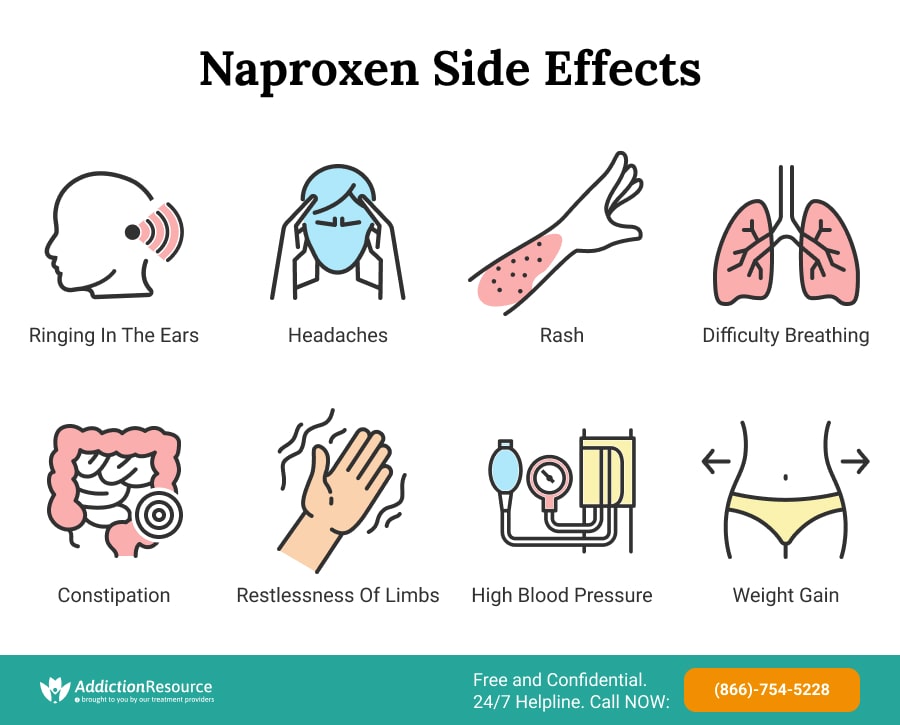We deliver to you every day from 7:00 to 23:00
The best discounts this week
Every week you can find the best discounts here.
Can Naproxen Cause Heart Problems?
Naproxen, a widely used nonsteroidal anti-inflammatory drug (NSAID), is commonly prescribed to relieve pain and inflammation. While it is effective for managing conditions such as arthritis, muscle pain, and headaches, there are concerns about its potential effects on heart health. In this article, we will explore how naproxen works, its potential impact on heart function, and what you should consider before taking it.

Understanding Naproxen
Naproxen is part of the NSAID family, which works by blocking the production of prostaglandins, chemicals that cause pain, inflammation, and fever in the body. It is commonly used to treat conditions such as:
-
Arthritis
-
Tendinitis
-
Gout
-
Muscle pain
-
Headaches
Naproxen is available over-the-counter in lower doses and by prescription in higher doses. It is known for providing long-lasting pain relief, which makes it an appealing option for chronic conditions.
How Naproxen Affects the Body
Naproxen works by inhibiting the COX-1 and COX-2 enzymes, which are responsible for producing prostaglandins. By reducing the amount of these chemicals, naproxen helps lower pain and inflammation. However, while it is effective in treating pain, it can also have side effects, particularly when used over long periods or at high doses.
The Impact of Naproxen on the Heart
One of the most concerning side effects of NSAIDs like naproxen is their potential to affect cardiovascular health. Long-term use or high doses of naproxen have been associated with an increased risk of heart problems, particularly in people with pre-existing heart conditions.
Here are some of the ways naproxen may affect heart health:
-
Increased Risk of Heart Attack: Studies have shown that regular use of NSAIDs, including naproxen, can increase the risk of heart attack, especially in individuals with existing heart disease.
-
High Blood Pressure: Naproxen can cause fluid retention, which may lead to elevated blood pressure. This can put additional strain on the heart and increase the risk of heart-related complications.
-
Stroke: There is evidence to suggest that NSAIDs like naproxen can increase the risk of stroke, especially with long-term use.
-
Heart Failure: Chronic use of naproxen may also contribute to heart failure, particularly in individuals who are already at risk due to pre-existing cardiovascular conditions.
The Difference Between Naproxen and Other NSAIDs
Not all NSAIDs have the same impact on heart health. While naproxen is considered to have a lower cardiovascular risk compared to other NSAIDs like ibuprofen and diclofenac, it still carries some level of risk, especially when used frequently or in high doses.
Comparing Naproxen with Other Pain Relievers:
-
Ibuprofen: Similar to naproxen, ibuprofen is known to increase heart risk, though studies suggest it may be more likely to cause complications at higher doses.
-
Aspirin: Interestingly, low-dose aspirin is used for heart health because it helps prevent blood clots. However, high doses of aspirin can also increase heart risks, similar to other NSAIDs.
-
Celecoxib (Celebrex): This selective COX-2 inhibitor has been shown to have a somewhat lower risk of cardiovascular problems compared to traditional NSAIDs.

Who is at Risk for Heart Problems from Naproxen?
While naproxen can be safely used for short-term pain relief, certain groups of people are at a higher risk of experiencing heart problems when taking this drug. These include:
-
Individuals with Existing Heart Disease: People who already have coronary artery disease, heart failure, or have previously experienced a heart attack are at a higher risk of adverse heart effects.
-
Older Adults: People over 65 are more likely to experience cardiovascular side effects due to changes in metabolism and other age-related health factors.
-
People with High Blood Pressure: If you already have high blood pressure or are at risk for it, using naproxen regularly can worsen your condition.
-
Those Taking Other Medications: If you are on other medications for heart conditions, such as blood thinners or diuretics, the combination with naproxen can increase the likelihood of complications.
Can I Take Naproxen If I Have a Heart Condition?
If you have a heart condition, it’s crucial to consult with your doctor before using naproxen or any other NSAID. Your healthcare provider can help you determine whether it is safe for you to use naproxen, and if not, recommend alternatives for pain relief that are less likely to cause cardiovascular problems.
How to Safely Use Naproxen
If you need to take naproxen for pain relief, there are steps you can take to minimize the risk of heart-related side effects:
-
Use the lowest effective dose: Taking the smallest possible dose that still provides relief can reduce the risk of side effects.
-
Limit the duration of use: Use naproxen for the shortest time necessary to manage your symptoms.
-
Monitor your heart health: Regular check-ups with your doctor are essential, especially if you are using naproxen long-term.
-
Consider alternatives: If you are at high risk of heart disease, your doctor may suggest alternative medications like acetaminophen (Tylenol), which has a lower risk of cardiovascular side effects.
What Are the Signs of Heart Problems from Naproxen?
It’s essential to be aware of the potential warning signs that your heart may be affected by naproxen. These include:
-
Chest pain or discomfort
-
Shortness of breath
-
Swelling in the legs or ankles
-
Dizziness or fainting
-
Unusual tiredness or fatigue
If you experience any of these symptoms while taking naproxen, seek medical attention immediately.
FAQs About Naproxen and Heart Health
1. Can naproxen cause a heart attack?
Yes, naproxen can increase the risk of a heart attack, especially with long-term use or in individuals with existing heart conditions.
2. Is naproxen safer than ibuprofen for the heart?
While naproxen is generally considered to have a lower risk of heart-related issues compared to other NSAIDs like ibuprofen, it still carries some cardiovascular risk, especially when taken in high doses or for extended periods.
3. Are there any safer alternatives to naproxen for pain relief?
Yes, alternatives like acetaminophen (Tylenol) are generally safer for people with heart conditions. However, always consult with your healthcare provider before making a switch.
4. How long can I take naproxen without harming my heart?
Short-term use of naproxen (for a few days) is generally considered safe. However, long-term use should be monitored by a doctor to prevent cardiovascular complications.
Conclusion: Use Naproxen with Caution
While naproxen is an effective pain reliever, it’s important to be aware of its potential risks to heart health, especially if you have pre-existing conditions. Always consult your doctor before starting any new medication, particularly if you have concerns about your heart. By using naproxen safely and under medical supervision, you can enjoy its benefits while minimizing the risks.
For more information on pain management and heart health, visit DUYTHIN.DIGITAL.











